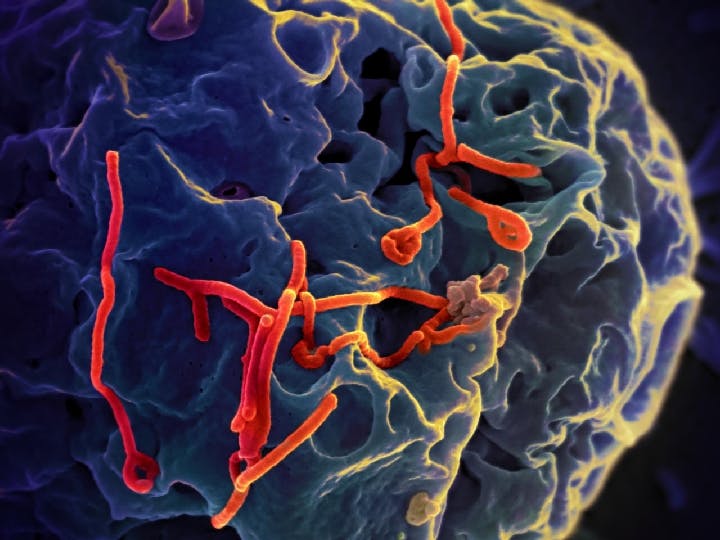How corporations helped stop the Ebola crisis
– Nicole Panoc
Ebola reached an epidemic-level crisis because of government instability. It became manageable thanks to outside institutions.
While the media frenzy surrounding Ebola has dissipated in the United States, the war against the virus rages on in West Africa. With assistance from both the nonprofit world (e.g. Doctors Without Borders) and foreign governments (e.g. the U.S. military’s Operation United Assistance), the nations of Guinea, Liberia, and Sierra Leone have made significant strides to eradication since the height of the epidemic in the summer and fall of 2014.
While the efforts of these groups, whether NGOs or state-based, have rightly earned coverage and praise, the role of for-profit groups — especially multinational companies with a regional presence — has been mostly left out of the conventional narratives of West Africa’s Ebola fight. Such multinational companies, writes Debora L. Spar in Foreign Policy, “play an outsized role in West Africa’s economy.” As such, they had integral and unusual roles in the efforts to control and prevent the spread of Ebola.
Firestone, the rubber behemoth, is a prime example. Responsible for nearly 9,000 West African workers and their dependents, Firestone “built two [Ebola] isolation clinics … converted pickup trucks into ambulances, and enforced a ‘no visitors’ policy.” Their preventative safety measures helped to ensure that not a single employee was infected. Steel giant ArcelorMittal took similar precautions, though the crises imposed extreme delays upon a number of projects, ultimately costing “nearly as much as [Liberia’s] entire GDP,” according to Spar. Yet that investment paid off, as the corporation successfully prevented the epidemic from infecting their West African factory workers.
Still, such efforts were not without their critics, and the implications and influence of multinational corporations in West Africa are profound. Some critics blame corporate behemoths for creating the environmental conditions that sparked the Ebola crisis in the first place. According to Spar, the logic of these critiques is straightforward: “As firms harvested resources or made way for open land, they inevitably cut through forests, reducing their mass and forcing wildlife into areas of human habitation.” The result? Animal-borne viruses (Ebola included) could be contracted more easily by humans.
“Guinea, Liberia, and Sierra Leone were stunned by the sheer enormity of the crisis and their lack of capacity — financial, technical, medical, and even military — to do anything about it.” These nation-states are very young and very weak, having on gained independence far more recently than the regional powers of Nigeria and Senegal, neither of which were touched by 2014’s Ebola epidemic. As Spar emphasizes, these three younger, weaker states have not seen lasting success in their efforts to create stable “independent political parties, strong government institutions, sound infrastructure, or robust civil societies,” and all three score in the bottom 12 percent globally in the World Bank’s rankings of government effectiveness.
Considering such realities, it should come as little shock that these weakened states succumbed to the Ebola virus with such speed and ferocity. By contrast, multinational corporations recognize their abilities to lend aid in such situations, and “inevitably fill power vacuums, for better or worse.” In short, Ebola became an epidemic-level crisis because of governmental instability; the epidemic became manageable thanks to outside institutions.
For West Africa, writes Spar, “the problem is not the power of foreign investors; it is the weakness of local states.” While the Ebola crisis clearly set Guinea, Liberia, and Sierra Leone back, ensuring a baseline level of public health from viral epidemics is essential for statehood to exist in any meaningful sense.
In the case of Ebola, it is the responsibility of the international community — the World Health Organization, Doctors Without Borders, troops on humanitarian missions, volunteers, and multinational corporations, too — to provide support. The challenge is too big and the costs — in dollars, opportunities, and human lives — are simply too great for nonprofits and governments to carry alone.
* * *
The Source: “Heroic Villains” by Debora L. Spar, Foreign Policy, January 2015.
Photo courtesy of NIH/NIAID
